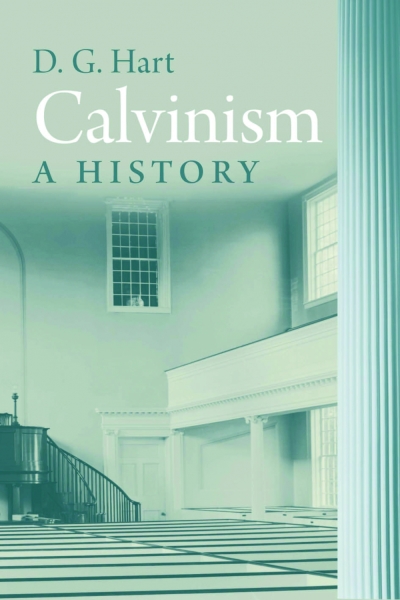Calvin Not the Founder of 'Calvinism?' Reformed Scholar's Book Points to Other Leaders

A Reformed historian claims that John Calvin, whom thousands celebrated on the 500th anniversary of his birth in 2009, should not be considered the founder of Reformed Protestantism, or more commonly known as "Calvinism."
The new book, Calvinism: A History, aims "to show how varied Calvinism is and how it had so many other hands cooking the stew other than Calvin himself," author Darryl G. Hart, visiting assistant professor of history at Hillsdale College in Michigan, told The Christian Post in a Tuesday interview. Rather than describe how Calvinism set the stage for the modern world – inspiring capitalism, individualism, and representative democracy – Hart focuses on the "genealogy" of the faith.
The author noted that it wasn't until the 19th Century that Calvin's works were published far enough to gain a wide readership, so after his death there spanned an almost 300 year gap before his modern influence.
"In order to explain how Reformed churches and Calvinist churches spread around the world, you have to look at other actors," Hart asserted. He acknowledged that some denominations still remember these leaders in some way, but argued the need for a history that connects them, showing how their work helped Reformed Protestantism grow into the worldwide movement it is today.
"The total effect of Calvinism came from these ad-hoc, haphazard efforts of churchmen, ministers, leaders in various parts of the world, without any kind of larger organization trying to coordinate them," the historian explained, "almost a spontaneous order." But he quickly shied away from the idea of bees coordinating in a hive, adding that "order is probably too strong."
The author said that he personally sees the hand of God in this unique movement of Reformed Protestantism, but as a historian, he "wouldn't put it that way." He admitted that much of Calvinist history seems random and accidental, and he rejected on principle the idea of "laws of history or rules of history." Nevertheless, Hart asserted the providence of God.
"As a Christian myself, I do think that God's providential hand is overseeing this in some way," he said, adding that, without divine revelation, "I don't have the grounds to see the hand or the mind of God in this."
This faith in an unknown providence has often been considered the only attribute of Calvinism, Hart warned, and that is not the case. He condemned the focus on predestination – the idea that God chose, before all eternity, those who would be saved by Jesus' death on the cross and those who would perish in their sins – as "almost a reduction of what Calvinism or Reformed Protestantism is."
"You can find election or predestination in Augustine or Aquinas," he argued. The new focus of the Reformed Protestant movement isn't the doctrine of predestination, but a radical dedication to Biblical reform of the church.
The man who could be considered the true founder of the movement, Hart contended, was Ulrich Zwingli, a German pastor who argued against the Roman Catholic practice of mandated fasting during Lent in 1522. The historian also mentioned a few other interesting actors – Peter Styveson, the original governor of dutch settlers in what is today New York, and Johannes Bame, a reform minister who was essentially forced into the ministry when he came to the U.S. in 1720.
Touching on more recent history, Hart also named Karl Barth, a Swiss Reformed theologian who is often regarded as the greatest Protestant theologian of the 20th century, as an important figure in Reformed Protestantism.
On the church's relationship with politics, the historian noted that at the beginning of the Reformation, churches needed the state or the magistrate to protect them from the emperor or the pope. Over time, however, Reformed churches moved out of Europe and began to reject state control, gradually asserting more authority in their own matters.
"The history of Calvinism is the history of an emergence of a 'two kingdom' kind of perspective," Hart contended, with the churches slowly carving out a separate freedom from the state.





















